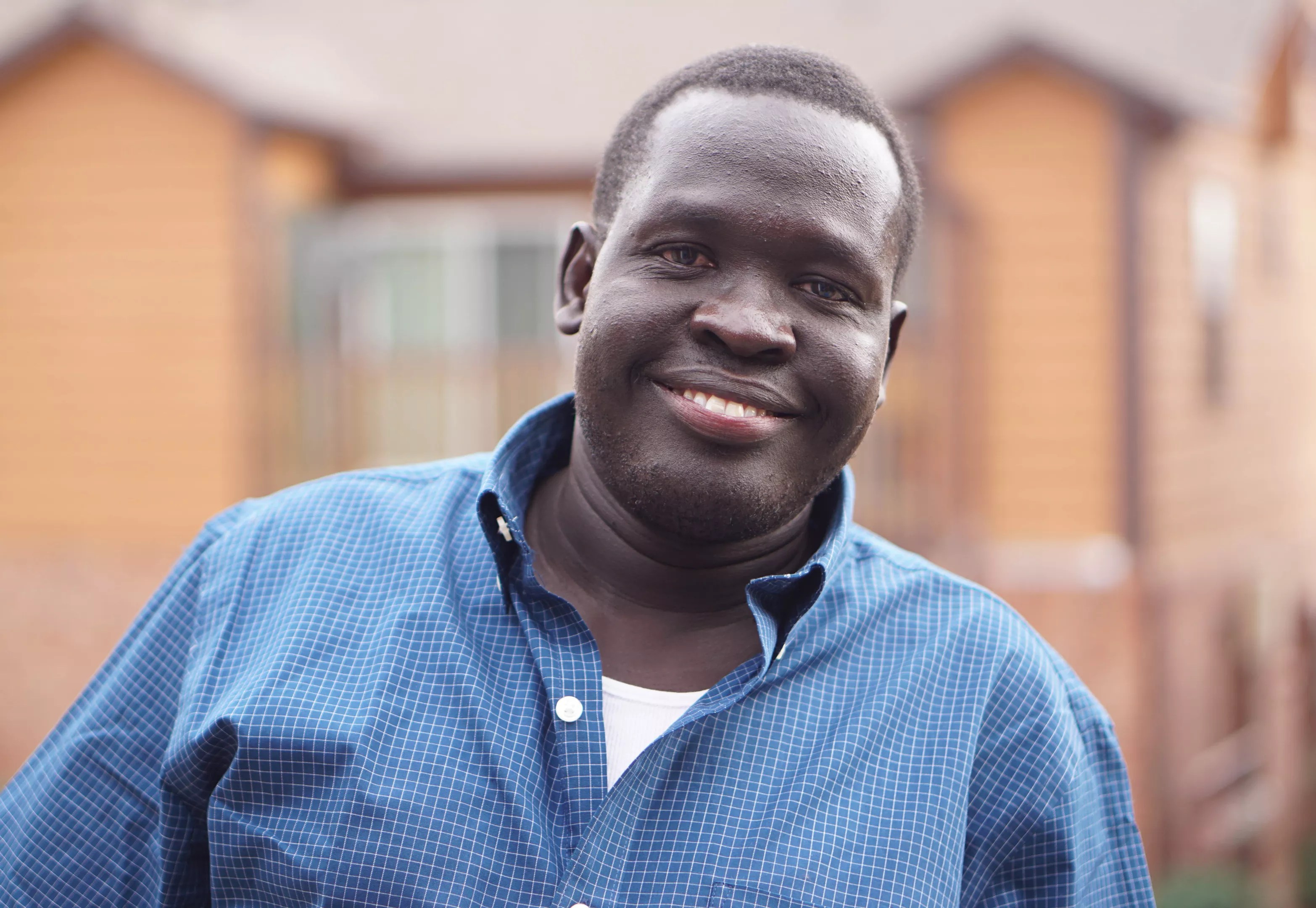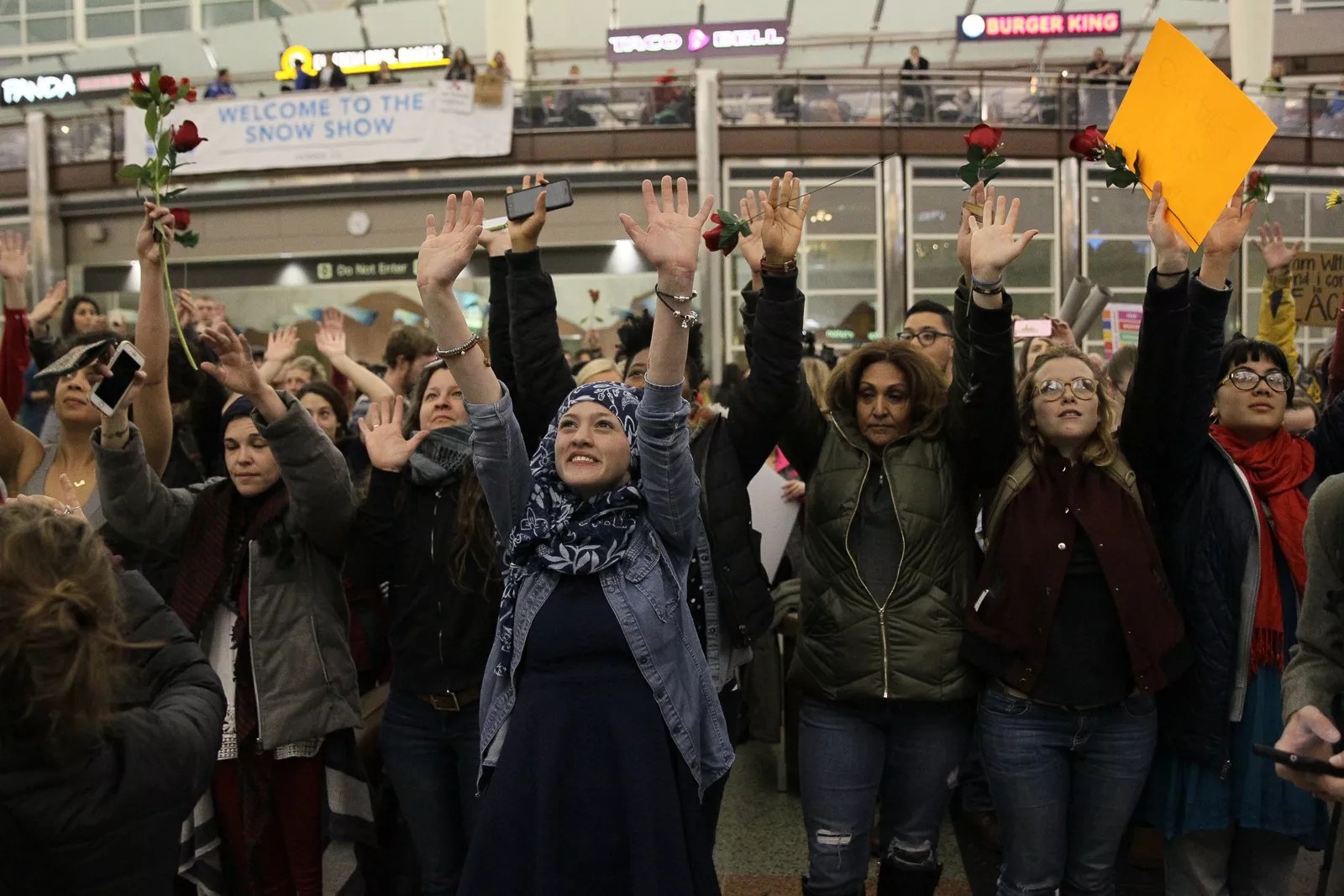
Marakah Mancini

Audio By Carbonatix
On Monday, May 15, three judges from the Court of Appeals for the Ninth Circuit convened in Seattle to deliberate on the second iteration of President Trump’s travel ban, which seeks to ban foreigners from six countries (Iran, Libya, Somalia, Sudan, Syria and Yemen) from entering the United States for ninety days, as well as to prevent refugees from entering for 120 days. During the session, the three judges questioned Solicitor General Jeffrey Wall, representing the government, and Neal Katyal, a lawyer representing the State of Hawaii, on the ethics of Trump’s controversial executive order.
The main argument against the travel ban is that it clearly targets Muslims because the six banned countries have populations that are predominantly Muslim. During deliberations, Katyal pointed to the fact that President Trump advocated for a Muslim ban during his campaign, and the travel ban is that campaign promise coming to fruition. President Trump’s administration argued that the ban doesn’t contain any religious language, a key change from Trump’s first travel ban in January, and that the only concern is national security. A final decision was not made Monday, but the losing side is expected to appeal, which would bring the case before the U.S. Supreme Court.
Jacob Ayol, a security supervisor at Denver International Airport who came to America from Sudan in 2003, was working at the airport when Trump’s first travel ban took effect in January. He says chaos broke out, with confused families being held up at customs, wondering if they’d be able to reunite with their loved ones. As someone who migrated to America, served in the Army for two years, and now spends his days ensuring the safety of domestic and international travelers, Ayol says he didn’t appreciate being put in that position. He found himself on the front lines of a controversial measure without any answers to give to concerned travelers. People turned to him for answers because he was an official working at the airport, but he was just as confused as anyone else. Everyone was suffering from “fear of the unknown,” he says, which was something he thought he left behind in Sudan.
Life in Africa for Ayol had taken one unexpected turn after another. When he was seven, he was taken from his family in southern Sudan and sent to a camp in Ethiopia with thousands of other children. The northern part of Sudan was mostly Muslim, while the southern section was heavily Christian, and civil war stemming from religious intolerance engulfed the entire country. “Each wanted to be superior, and each was afraid of the other,” Ayol says. “It has brought our country to its knees and divided our country. It’s not just history; it’s real life. We just all want to live. We want to appreciate life and not tell the other what to believe.”
This year, make your gift count –
Invest in local news that matters.
Our work is funded by readers like you who make voluntary gifts because they value our work and want to see it continue. Make a contribution today to help us reach our $50,000 goal!

In January, roughly a thousand protesters rallied at Denver International Airport to demonstrate against President Donald Trump’s travel ban.
Brandon Marshall
Ayol’s father had to make the difficult decision to send him to war, a decision Ayol has come to terms with. “All parents had to give up the oldest male child in the house,” he says. “My dad was one of the elders, and he had to set a good example by giving me up. He would have been fined, I would still go, and he would have done time, too.” Ayol’s cousin, Mayom, was fifteen at the time – old enough to join the army. He was killed in Juba, a city in southern Sudan, in 1992, one of four family members Ayol lost to the war.
During his first year away from home, Ayol didn’t go to school or have a home or even a blanket to sleep with. Many of his peers starved to death. Things slowly improved when the United Nations Refugee Agency dropped off building materials for huts to serve as shelters and schools. “I went from angry, to trying to figure out how to take care of myself, to wondering if the UN would be there for us the next day,” he says. When the political climate in Ethiopia deteriorated, Ayol was forced to move again and start over. The same cycle ensued: starting with nothing, building the huts and makeshift schools, and moving again. Ayol finally received a break when he was selected to attend a government boarding school in Kenya. Food was still scarce – he picked mangos and bananas off trees for meals – but his life improved. At nineteen, after years of moving around Africa without his parents, without steady meals and without much hope, he was allowed to enter the United States as a refugee. “I couldn’t even comprehend how good it was,” he says.
Ayol is engaging with the Service Employees International Union, a labor organization consisting of more than two million workers in the U.S. and Canada, in its fight to keep the travel ban from taking effect. The union filed an amicus brief, relevant documents and stories pertaining to the travel ban, with the Court of Appeals for the Ninth Circuit ahead of Monday’s hearing in hopes of swaying the judges. The brief tells stories of people like Abu Talib Ali, a lawyer and politician from northern Sudan who resisted the Muslim Brotherhood’s reign of terror and was imprisoned and tortured because of his rebelliousness. He was eventually granted citizenship in the United States after an American lawyer in Sudan took notice of his case. Now Ali, his wife and two of his children are legal U.S. residents. Ali has another daughter who traveled back to Sudan to study at the University of Khartorum before obtaining her green card.
The southern section of Sudan split and formed South Sudan in 2011, and although it’s not on Trump’s list of banned countries, Ayol is still warning his family and friends to stay put until a decision is made. He’s hoping that future generations are given the same chance that he was to come to the United States.
“It is very important as a former refugee that I found a home in the United States, where I’m now a citizen,” he says. “I can vote. I think they deserve to have a home, to live just like me and just be a citizen. It’s important if you’ve ever lived where you don’t see buildings, where you don’t know where you will eat tomorrow, you don’t see clean water. If you ever live like that, you will understand that it is very important that someone have a shot at life.”